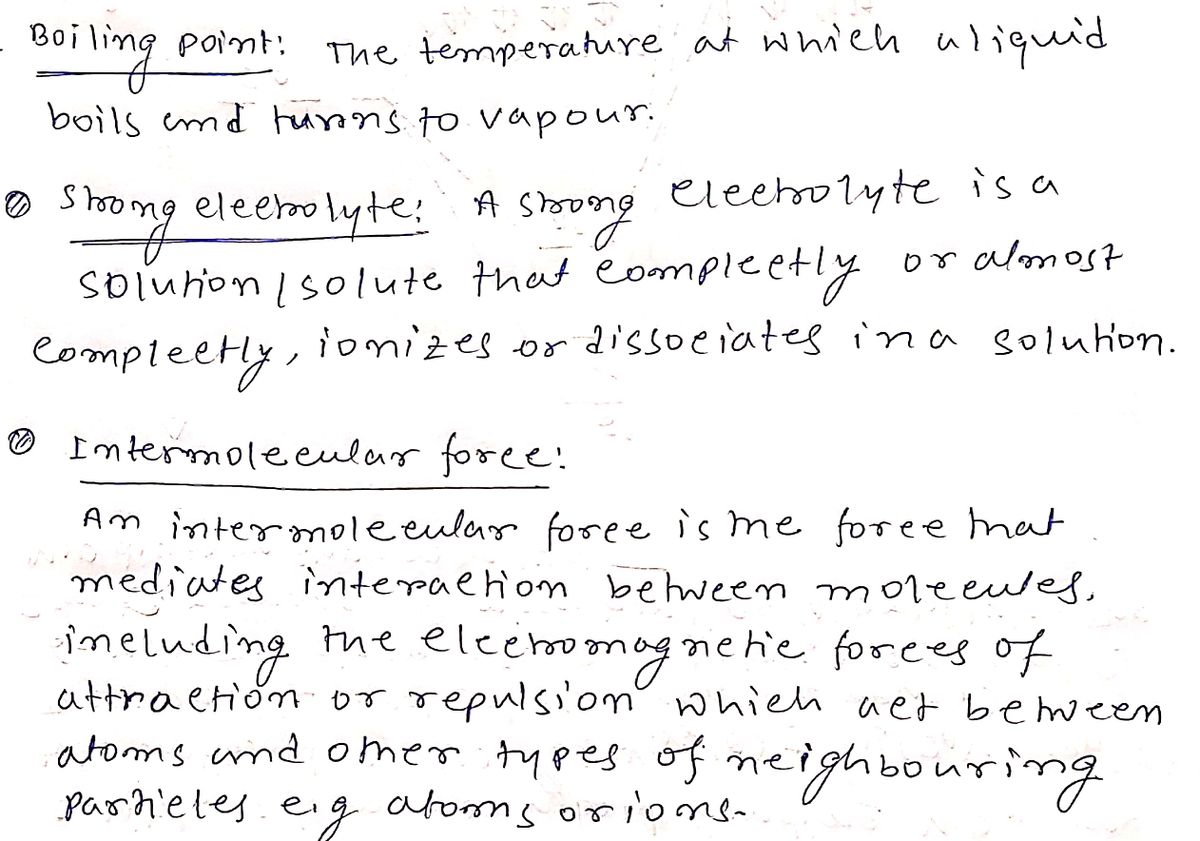1. Is NH C1 compound acidic, basic, or neutral? 2. Write the equilibrium equation for the acidic or basic component(s) of NH¸Cl in aqueous solution with phases. If you wrote neutral above, write NR for no reaction. 3. What is the conjugate of the acidic or basic component(s) in this compound? 4. What is the molarity of a 3.17% (m/v) solution of NH CI? 5. What is the expected boiling point of that solution? 6. The K for this compound is 5.6 × 10⁰. What is the pH of this solution? 7. The solvent here is water. What type of intermolecular forces allow for NH Cl to dissolve in water? Explain your reasoning. 8. Would you consider NHCl to be a strong, weak, or non- electrolyte? Explain your reasoning.
1. Is NH C1 compound acidic, basic, or neutral? 2. Write the equilibrium equation for the acidic or basic component(s) of NH¸Cl in aqueous solution with phases. If you wrote neutral above, write NR for no reaction. 3. What is the conjugate of the acidic or basic component(s) in this compound? 4. What is the molarity of a 3.17% (m/v) solution of NH CI? 5. What is the expected boiling point of that solution? 6. The K for this compound is 5.6 × 10⁰. What is the pH of this solution? 7. The solvent here is water. What type of intermolecular forces allow for NH Cl to dissolve in water? Explain your reasoning. 8. Would you consider NHCl to be a strong, weak, or non- electrolyte? Explain your reasoning.
Chemistry
10th Edition
ISBN:9781305957404
Author:Steven S. Zumdahl, Susan A. Zumdahl, Donald J. DeCoste
Publisher:Steven S. Zumdahl, Susan A. Zumdahl, Donald J. DeCoste
Chapter1: Chemical Foundations
Section: Chapter Questions
Problem 1RQ: Define and explain the differences between the following terms. a. law and theory b. theory and...
Related questions
Question
I need help with questions 5-8?

Transcribed Image Text:1. Is NH₂Cl compound acidic, basic, or neutral?
2. Write the equilibrium equation for the acidic or basic
component(s) of NH₂Cl in aqueous solution with phases. If
you wrote neutral above, write NR for no reaction.
3. What is the conjugate of the acidic or basic component(s)
in this compound?
4. What is the molarity of a 3.17% (m/v) solution of NH CI?
5. What is the expected boiling point of that solution?
6. The K for this compound is 5.6 × 10¹º. What is the pH of
this solution?
a
7. The solvent here is water. What type of intermolecular
forces allow for NH Cl to dissolve in water? Explain your
reasoning.
8. Would you consider NHCl to be a strong, weak, or non-
electrolyte? Explain your reasoning.
Expert Solution
Step 1

Trending now
This is a popular solution!
Step by step
Solved in 3 steps with 3 images

Follow-up Questions
Read through expert solutions to related follow-up questions below.
Follow-up Question
- What is the molarity of a 3.17% (m/v) solution of NH4Cl?
Please help me solve that question
Solution
Follow-up Question
I neesd help with questions 1-8 in the above questions.
Solution
Knowledge Booster
Learn more about
Need a deep-dive on the concept behind this application? Look no further. Learn more about this topic, chemistry and related others by exploring similar questions and additional content below.Recommended textbooks for you

Chemistry
Chemistry
ISBN:
9781305957404
Author:
Steven S. Zumdahl, Susan A. Zumdahl, Donald J. DeCoste
Publisher:
Cengage Learning

Chemistry
Chemistry
ISBN:
9781259911156
Author:
Raymond Chang Dr., Jason Overby Professor
Publisher:
McGraw-Hill Education

Principles of Instrumental Analysis
Chemistry
ISBN:
9781305577213
Author:
Douglas A. Skoog, F. James Holler, Stanley R. Crouch
Publisher:
Cengage Learning

Chemistry
Chemistry
ISBN:
9781305957404
Author:
Steven S. Zumdahl, Susan A. Zumdahl, Donald J. DeCoste
Publisher:
Cengage Learning

Chemistry
Chemistry
ISBN:
9781259911156
Author:
Raymond Chang Dr., Jason Overby Professor
Publisher:
McGraw-Hill Education

Principles of Instrumental Analysis
Chemistry
ISBN:
9781305577213
Author:
Douglas A. Skoog, F. James Holler, Stanley R. Crouch
Publisher:
Cengage Learning

Organic Chemistry
Chemistry
ISBN:
9780078021558
Author:
Janice Gorzynski Smith Dr.
Publisher:
McGraw-Hill Education

Chemistry: Principles and Reactions
Chemistry
ISBN:
9781305079373
Author:
William L. Masterton, Cecile N. Hurley
Publisher:
Cengage Learning

Elementary Principles of Chemical Processes, Bind…
Chemistry
ISBN:
9781118431221
Author:
Richard M. Felder, Ronald W. Rousseau, Lisa G. Bullard
Publisher:
WILEY